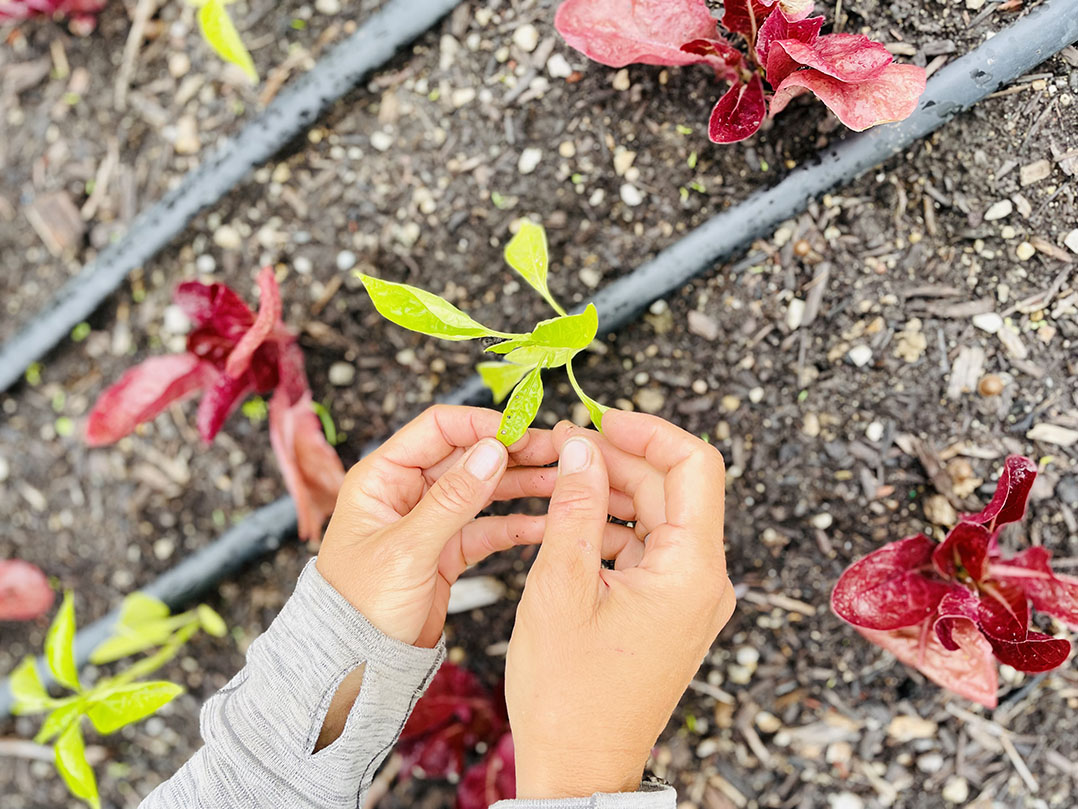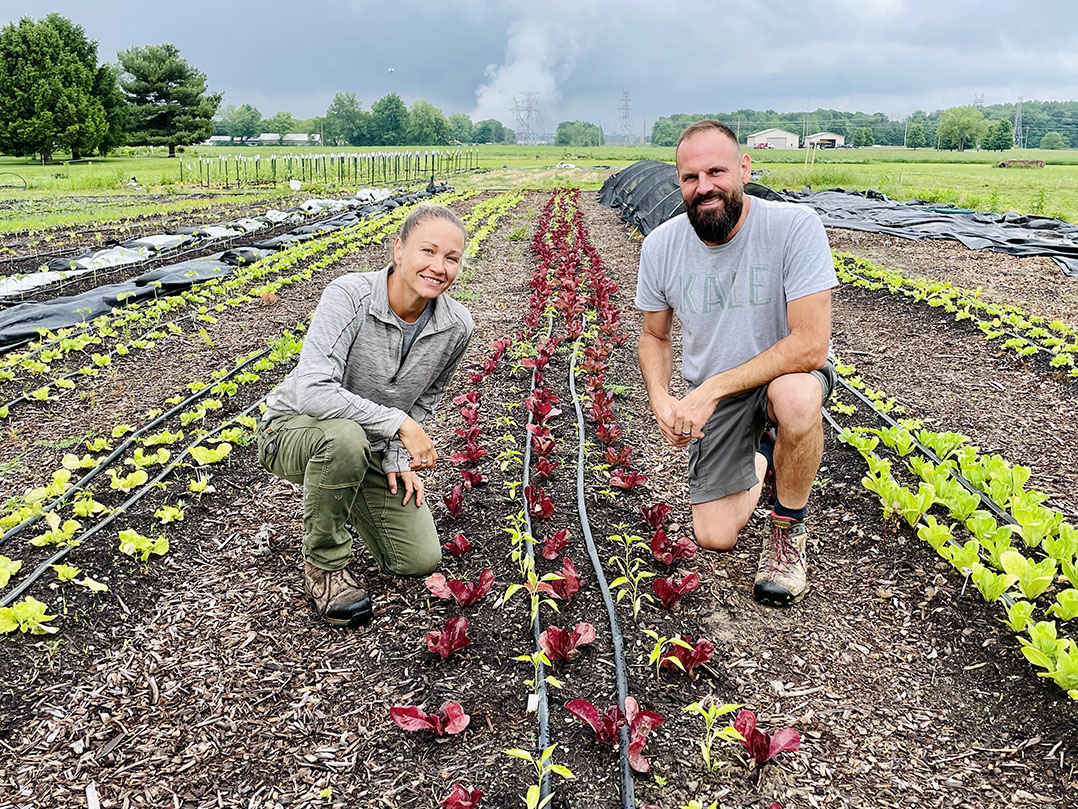Katy Rogers and Kyle Heiny believe they operate the only two USDA-certified organic farms in Hamilton County. And maintaining them is no easy chore.
“The record keeping is pretty intense,” said Rogers, who is the manager at Teter Organic Farm in northern Noblesville.
To become USDA-certified organic, the process takes at least three years to allow the soil to recover from non-organic chemicals previously used. But because of a fortunate circumstance, Heiny didn’t have to wait three years.
“The property I owned we had bought, and it had been vacant for five years ahead of time,” said Heiny, who owns Green Growers in Sheridan. “I started my farm using organic practices knowing I would transition at some point.”
Strict annual practices must be followed to ensure the farms are organic. Certified organic farmers must keep meticulous records on how they make their compost and any inputs from seed to harvest such as fertilizer, pesticides and herbicides. All products used must be approved and documented. Water and soil tests are performed annually.
“For example, we have 42 varieties going in the ground this year, and we have multiple plantings for almost every one of those,” Rogers said. “The organic inspector, in addition to checking financials and testing and purchases, will go through the crop plan and pick crops and I have to show a record of that crop’s seed purchase all the way through how we harvest.”
However, it all pays off at harvest time.
“(Organic) is shorthand (information) for the public,” Rogers said. “Certified organic is shorthand for, ‘My baseline practices are at least this good.’”
Organic labels on products at grocery stores or farmers markets reflect that the was food grown without synthetic chemicals. But for Rogers and Heiny, organic farming means much more than that.
“Ideally, organic agriculture is about an ecological approach to soil health, stewardship, pest management,” Rogers said. “It’s keeping all of this in mind, the entire picture in mind, and viewing it as an ecosystem. Anytime you disrupt that ecosystem, there’s repercussions. In organic agriculture, the idea is to mitigate those repercussions to minimalize the negative impacts.
“Instead of approaching agriculture as chemistry, we approach it as biology, physics and chemistry.”
Rogers and Heiny have booths at the Noblesville Farmers Market.
“Our products don’t go to the supermarket,” Heiny said. “We do farmers markets, so we have to educate people and provide validity to our growing practices. Having a certification is another level of validation that what you’re doing is legitimate.”
Rogers, who operated a farmers market for several years, said there are loopholes some vendors can take, such as purchasing produce at a produce auction or produce market and then selling it at the market. A common example is when vegetables are sold out of season at the farmers market, such as tomatoes being sold in Indiana in May.
However, Heiny said he knows some farmers who have the resources available to grow tomatoes in hot houses starting in December and have their own products available out of season. The key for customers finding out is to ask questions, such as, “Is this product non-GMO?” or to look for labels like USDA organic, certified naturally grown, regenerative agriculture or Real Organic Project.
“Knowing the amount of energy and effort we are putting into doing this, we just want those participating in the market to be legitimate,” Heiny said. “We are so glad (the market) is giving us this hyperlocal outlet.”

Following additional standards
Besides being USDA-certified organic, Teter Organic Farm in Noblesville is certified through the Real Organic Project. Green Growers in Sheridan is working on its certification as well.
Real Organic Project is an additional certification from a grassroots organization with a higher standard than USDA-certified organic.
“They come out and instead of checking my paperwork, they came out and walked my operation and interacted with my soil and checked my plants and stuff to make sure it wasn’t just happening on paper,” Rogers said. “They wanted to talk about our ethos, like, ‘How do you make decisions?’ or, ‘What are you going to do about the thrips (tiny winged insects)?’”



